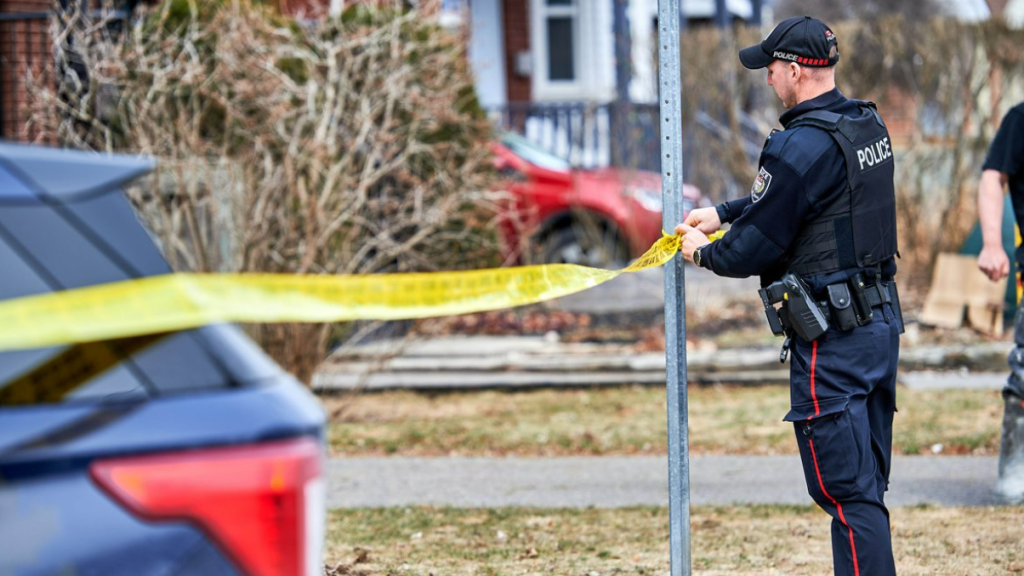Ontario removes five day isolation guideline for COVID-19
Posted Aug 31, 2022 09:30:00 PM.
Ontarians who test positive for COVID-19 no longer have to isolate for five days but should stay home until their fever clears and their symptoms have improved for at least 24 hours.
The province’s chief medical officer of health, Dr. Kieran Moore, said on Wednesday, Aug. 31 that people can return to work or school while still testing positive for COVID but not if they are symptomatic. However, he noted that workplaces have their own requirements.
He also said people should wear a mask “in any setting” for 10 full days from the start of their symptoms, even if they feel better.
NEW: Dr Moore says if ppl are sick w respiratory illness they should stay home until symptoms have been improving for at least 24 hours — this includes ppl w covid. In other words the 5 day isolation is over for ppl w covid #onpoli
— Cynthia Mulligan (@CityCynthia) August 31, 2022
Dr. Moore also announced that children aged five to 11 in Ontario will be able to book an appointment for a COVID booster shot starting Thursday.
As part of a broader update on the province’s response to the pandemic, the top doctor said Ontarians can expect another increase in COVID-19 cases this fall, and is asking everyone to stay up to date with their COVID and flu vaccines.
However, he said improvements such as better ventilation and environmental cleaning in schools, combined with the level of immunization across Ontario, mean “we now can have a more permissive approach to return.”
Dr. Moore said the province is moving away from COVID-19-specific guidance in favour of an “all-virus approach,” meaning the guidelines apply to other illnesses such as the flu.
“This approach should decrease the risk of all respiratory viruses in our communities,” he said.
“The caveat is that we also want to maintain high level of protection through … keeping up to date with all of our vaccinations, but in particular keeping up to date for the COVID-19 vaccination.”
Data published by the Ontario COVID-19 Science Advisory Table shows wastewater signals, an early COVID-19 trend indicator, have ticked up since mid-August after declining for three weeks.
Dr. Moore said Wednesday that while the seventh wave of COVID, driven by the Omicron variant, has peaked, the virus continues to evolve.
“It also highlights the reality that COVID-19 remains in the community and we need to continue responding and adapting to its ongoing presence in our lives. As we start spending more time indoors this fall, we can expect to see another increase in COVID-19 transmission,” he said.
“We are also approaching the time of year when other respiratory illnesses increase in circulation.”
Dr. Moore also advised Ontarians to continue wearing a good-fitting mask when it is right for them, and said high-risk people should wear one indoors, adding it is a “proven tool to help limit the spread of respiratory illness in the community.”
The medical officer of health also provided additional guidance on how to manage COVID and other respiratory illnesses as fall approaches:
- Anyone who is in contact with someone who has tested positive for the virus should self-monitor for symptoms. There is no longer a need to isolate but you should wear a mask for 10 days when in public.
- Anyone experiencing symptoms of COVID such as fever, cough, or runny nose, should stay home from school, work and social events until the fever is gone and symptoms are improving, get a rapid antigen test or, if eligible, a PCR test. They should also wear a mask for 10 days after and avoid non-essential visits to high-risk individuals and settings.
Dr. Robert Cushman, the acting medical officer of health for the Renfrew County and District Health Unit, told The Rob Snow Show on Sept. 1 that the move to ease restrictions for those who test positive does come with some risk.
“I think it's a calculated risk,” he said. “Right now, the rules are too stringent so we are suffering because we don't have the staff. Whether this adds to that, because we see more disease, it's a bit of a gamble.”
He said the province's new guidance must come with personal responsibility.
“If you have the acute symptoms – head cold, fever and what not – make sure they are clear,” he said.
Dr. Gerald Evans, the chair of the infectious diseases division at Queens University Medical School, told The Sam Laprade Show on Sept. 1 that the recommendations made by Dr. Moore won't be used in hospital settings.
“We are going to be maintaining isolation periods which make sure staff who are sick are off until they are no longer likely to tranmit,” he said.
Listen to the full interview with Dr. Gerald Evans below:
Listen to the full interview with Dr. Robert Cushman below:
With files from Cynthia Mulligan and Richard Southern of CityNews and CityNews Ottawa.








